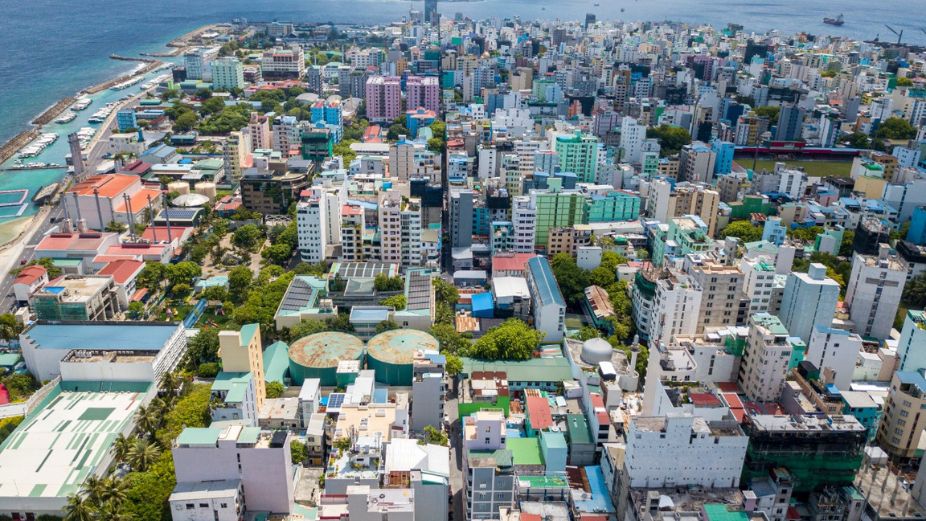Driven by a rebound in tourism, Maldives’ economy recovered strongly last year, and poverty is expected to have fallen below pre-pandemic levels. But high external debt and tightened global financing pose risks to the country’s fiscal and external accounts, says the World Bank in its twice-a-year update, underscoring the need for more robust fiscal reforms.
Released today, the latest South Asia Economic Focus, Expanding Opportunities: Toward Inclusive Growth, projects regional growth to average 5.6 percent in 2023, a slight downward revision from the October 2022 forecast. Growth is expected to remain moderate at 5.9 percent in 2024, following an initial post-pandemic recovery of 8.2 percent in 2021.
Also released today as a companion piece, the latest Maldives Development Update (MDU) projects the country’s economy to maintain strong growth, primarily due to an upswing in tourist arrivals, capital spending, and private consumption. In Maldives, Real GDP growth is projected at 6.6 percent in 2023. However, external and fiscal vulnerabilities pose significant risks to the economic outlook, including more expensive external borrowing and an uncertain global environment.
Inflation is expected to rise to 5.7 percent in 2023, mainly due to increased Goods and Services Tax (GST) rates. Despite government subsidies for fuel and food, global commodity prices will still impact households. However, inflation should decline to 2.5 percent over the medium term, largely due to projected decreases in oil prices.
Fiscal deficits are expected to remain high due to ambitious infrastructure spending plans. Blanket subsidies, transfers to loss-generating State Owned Enterprises (SOEs), high capital spending, and election-related expenses may further strain government finances. To reduce the overall fiscal burden, reducing and rationalizing subsidies are needed. A more effective public investment planning and management system is necessary to ensure macroeconomic stability. Despite initial revenue reforms and further considerations in 2023, these efforts may not be sufficient to achieve a meaningful fiscal adjustment.
Reducing dependency on tourism and diversifying the economy remains a major objective for the Maldives’ growth strategy. Government’s heavy presence in economic activity, with SOEs forming a significant part of the non-tourism economy, also hinders private sector development.
“The Maldives’ economic growth prospects have been encouraging, particularly in the tourism sector, which could still drive further expansion,” said Faris H. Hadad-Zervos, World Bank Country Director for Maldives, Nepal, and Sri Lanka. “However, a significant fiscal adjustment is needed. The government’s decision to raise taxes is a positive start, and should pave the way for additional necessary adjustment. A notable reduction in spending and expenditure reforms, coupled with effective revenue mobilization are crucial for Maldives’ debt and fiscal sustainability.”
Meanwhile, the regional report notes that to go from recovery to sustained growth, South Asia needs to ensure economic development is inclusive. The region has among the world’s highest inequality of opportunity. Between 40 and 60 percent of total inequality in South Asia is driven by circumstances out of an individual’s control such as place of birth, family background, caste, ethnicity, and gender. Intergenerational mobility is also among the world’s lowest. Data highlighted in the report shows that less than 9 percent of individuals whose parents have low levels of education reach education levels of the upper 25 percent. Such disparities lead to differences in access to jobs, earnings, consumption, and welfare and to calls for redistributive policies.
The report recommends continuing to improve the quality of primary education and expanding access to secondary and higher education, evaluate and strengthen affirmative action policies targeted to “low opportunity” groups, and policies to improve the business climate for small and medium enterprises, who account for the bulk of job opportunities for the less well-off. In addition, reducing barriers to labor mobility can have a powerful equalizing impact as urban areas tend to offer more opportunities for social mobility.
Source: World Bank Maldives Development Update, April 2023.
Notes: e = estimate, f = forecast.



















